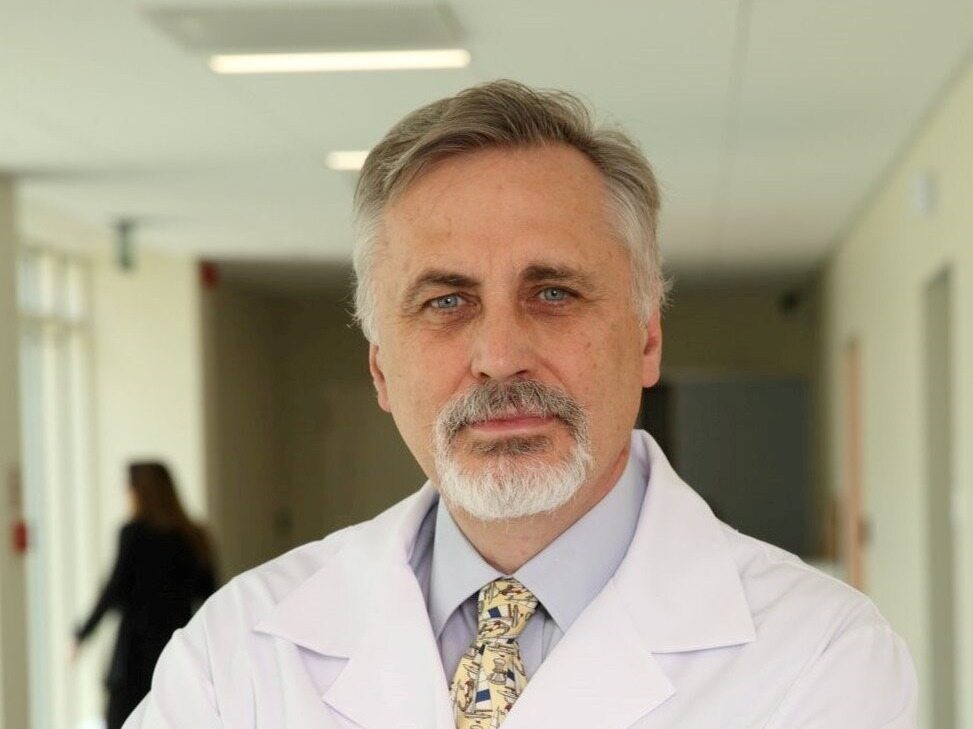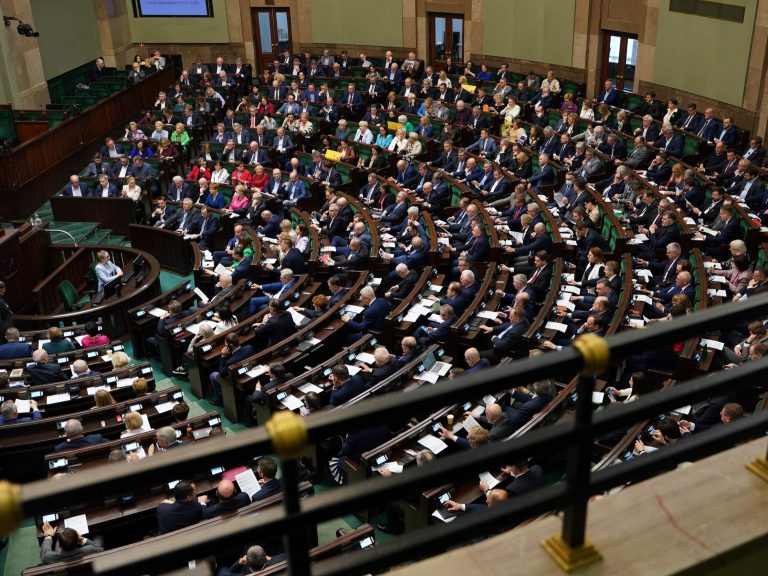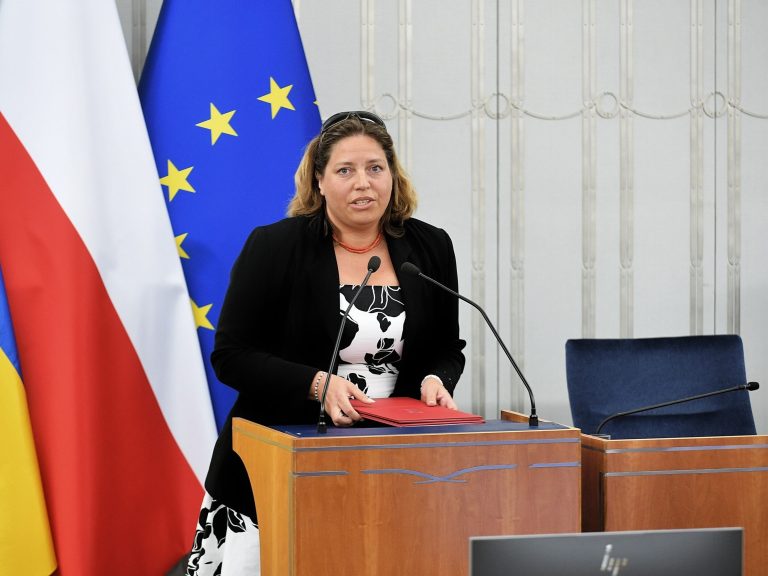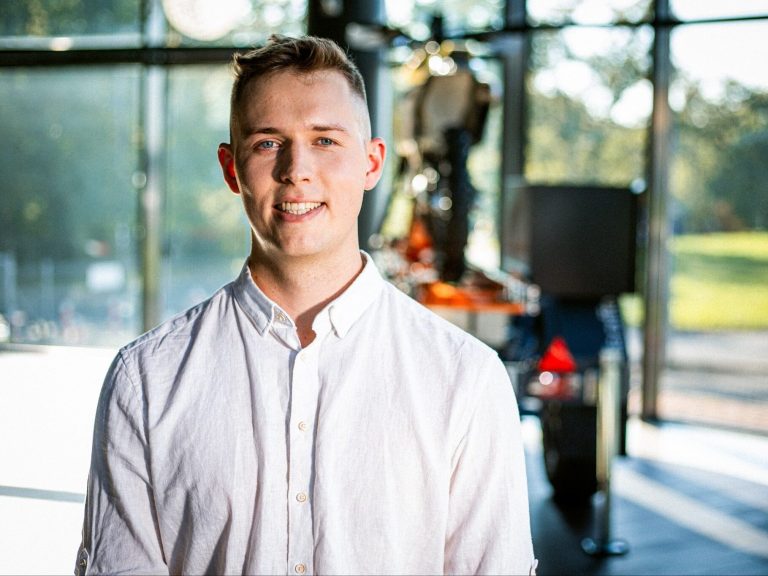Prof. Pieńkowski: We told patients fairy-tale stories. Today we have nothing to be ashamed of

Prof. Tadeusz Pieńkowski is one of the most outstanding Polish oncologists. She tells us about the beginnings of comprehensive breast cancer treatment in Poland and how the approach to sick patients has changed over the years, including: those who are pregnant.
Katarzyna Świerczyńska, “Wprost”: How did it happen that you got involved in oncology?
Prof. Tadeusz Pieńkowski*: You could say it’s in my genes because my mother, Feliksa Pieńkowska, was an oncologist. Moreover, she was one of the first clinical oncologists in Poland who could practice contemporary, modern oncology. Of course, she also dealt with breast cancer. I grew up with all this, and for me oncology itself has always been something that has great potential to, on the one hand, act for the benefit of the sick, and on the other hand, change the image of oncology as an ineffective treatment method. Decades ago, everything related to oncology and cancer was perceived as extremely depressing.
You have been working for over 30 years and I guess a lot has changed…
I could even say that almost everything has changed. And it’s not only about treatment methods and options, but even such obvious things today as an honest conversation with the patient. When I remember all the fairy tale stories we told patients…
Doctors didn’t tell patients they had cancer?
These were the recommendations back then. This was explained by the fact that cancer itself is such a great stress and a blow that, in order to spare these people additional mental suffering, we did not tell them directly about the disease.
I remember that it was a shock when one of the patients used the term “I have metastases” in a conversation with me. These were really things that were unimaginable at the time.
At that time, we told patients stories about “stimulated cells” and the possibility of effectively blocking them. Most often, we did not inform patients about the actual advancement of the disease. At that time, there was no information about cancer in the press, radio or television.
Today this is unthinkable.
And luckily. Today, no one doubts that a patient has the right to full knowledge about the disease and its prognosis. Thanks to this, the patient can consciously participate in the treatment process, is a co-decider about treatment, and is a partner of the doctor. Of course, the oncologist does not always know the full truth about the advancement of the disease. We can’t always predict everything, we don’t always know everything, there are no black and white stories here. For a doctor, informing patients is a difficult task, as no one likes to deliver bad news. The way we talk to patients and provide information about the disease, treatment and lifestyle has changed dramatically.
Back then, we always recommended cancer patients to lead a conservative lifestyle. Today it is quite the opposite: we tell them to be active and, as far as possible, live as before.
We try to do everything to reduce the stigma of this disease, to minimize the feeling of being excluded from family, social and professional life. If you were to look back at all these years, there have been changes that have had and continue to have a huge positive impact on the fate and lives of many people.
You also have a significant share in these changes and how oncology is perceived and what is offered to patients in Poland today. It was you who created the Breast Cancer and Reconstructive Surgery Clinic at today’s National Institute of Oncology in the 1990s.
No one has asked me about it for years… But in fact, when the construction of the hospital in Warsaw’s Ursynów district was nearing completion, the director, prof. Andrzej Kułakowski, a great figure in Polish oncology, started talking about the idea of changing the structure of the hospital. Previously, it was a, as I say, tool structure. There was, for example, a surgery clinic and a radiotherapy clinic. The new idea was to create organ clinics, i.e. clinics that deal with the treatment of one disease from start to finish, in this case breast cancer.
And I must admit that this idea aroused great resistance at the time.
Prof. However, Kułakowski showed great determination to carry out his plan, and he entrusted me with the task of leading the team and creating such a clinic. It was a success, and today no one is surprised that entire teams of specialists focus on the treatment of specific cancers, e.g. breast, lung or colon cancer. We really wanted this comprehensive care, including psychological care, to be under one roof. I must admit that creating the Breast Cancer and Reconstructive Surgery Clinic gave me great satisfaction, and to this day I feel that I participated in something really important and innovative. From the very beginning, we managed to introduce treatments and procedures that are now standards and no one treats them as something special, such as sentinel lymph node biopsies.
The comprehensive approach to women suffering from breast cancer and the emphasis placed on reconstructive surgery were also innovative.
The attitude on this issue was that a woman should be happy that she was alive, and not despair that she was more or less mutilated. Today, I hope, no doctor has any doubts that we should also care about preserving the beauty of our patients. Even if they themselves say at the beginning that they want to cut out everything, that they want to live and be healthy, we know that the issues of appearance and self-acceptance will soon turn out to be important – hence the very planning of sparing treatments, the use of elements of plastic surgery, and the performance of reconstruction. This is all extremely important. We need to say it loudly that breast reconstruction is not some kind of whim. This is an important element of the treatment, because if after the surgery a woman is unable to accept her appearance, if she feels strange in her body, it is difficult to say that the treatment was successful. After all, relationships fall apart, there is little talk about it, but also sexual life is in ruins and the quality of life deteriorates significantly. Women have the right to have their treatment plan cover all related aspects from the very beginning, including those related to their appearance after surgery.
Today, the treatment of pregnant women is perceived in a completely different way.
I will not hide the fact that the team from the Ursynów Clinic has played a major role in changing the approach to those patients who are in a particularly difficult situation. In the past, a pregnant woman diagnosed with cancer was initially offered an abortion. It was believed that pregnant women could not be treated. Anyway, it was enough to look at the drug leaflets, where one of the basic contraindications was always pregnancy.
Did you think it was different?
I was convinced of it! Unfortunately, we received women with very advanced cancers who were not treated because they really wanted to stay pregnant, and in many other centers only one solution was offered, i.e. abortion. The change in this approach was initially met with criticism. Today, I remember mainly the women who came to us completely devastated. They wanted to live, they wanted to be treated. There were pregnant patients who gave up treatment because they were so afraid of it. Fortunately, this attitude is a thing of the past. Today, it is no longer strange that we can treat a woman and she does not have to give up her pregnancy… Cancer itself and its occurrence do not eliminate motherhood.
It wasn’t always obvious?
I will tell you about my patient, a very young one. She was twenty-something years old and had breast cancer just after giving birth. She came to our clinic with very advanced cancer. The treatment we then offered her as part of a clinical trial was a blood stem cell transplant combined with high doses of chemotherapy. It was a method in which great hopes were placed at the time. I told her, according to my knowledge at the time, that after treatment she would almost certainly stop menstruating, that she would enter early menopause and that she would have to come to terms with the fact that further reproductive plans would be impossible. I remember how much she cried then. I left her and gave her time to cool down. When I came back, she said she agreed to everything. We did the treatment, everything was successful and she just went on with her life. And imagine that she came back to me two years later and announced that she was pregnant! She gave birth to a son and named him Bożydar. Then she gave birth to two more children, and when she turned 40, they gave me a collage of photos framed with the words “Thank you for Mommy.” So we come back to what can be summed up in the sentence that it is not only about surviving, but also about ensuring that this life can have a quality that is satisfactory for a woman.
You are the president of the Polish Society for Breast Cancer Research and it is difficult not to appreciate your contribution to the level of contemporary Polish oncology. You are the ones who provide breast cancer treatment centers with BCU accreditation, i.e. Breast Cancer Units.
In my opinion, the accreditation process is very important because the center must undergo external evaluation by an independent commission. He must agree that someone will come to look at everything and inspect everything. If someone does something alone, it is easy to fall into the belief that they do it best. Certifications provided by independent experts allow you to verify the procedures carried out at the center and indicate things that need to be improved.
Currently, we have 11 such accredited centers in Poland providing comprehensive breast cancer treatment, but what is important, accreditation is granted for five years. Therefore, it is also a motivation to maintain and develop this level.
Besides, I believe that Polish oncologists are no different from their colleagues from foreign centers. Barriers to access to the latest knowledge have disappeared. Today, thanks to websites run by academic institutions and scientific societies, the flow of information is very fast. Currently, we also have the opportunity to maintain personal contacts with oncologists around the world. Of course, access to modern therapies and drugs is a different matter, because this is where the problem of reimbursement arises. Recently, a lot has changed for the better. And I would like this trend to continue. Any decision delaying the introduction of reimbursement for drugs that we know are effective simply means human losses and unnecessary patient deaths. We have great specialists in Poland, we have research centers and research and development centers focused on medicine. All this means that we really have nothing to be ashamed of. What’s more, if someone is diagnosed with cancer today, it may turn out that tomorrow there will be a new therapy for them. Today, science is making progress at an enormous pace. However, there is an organizational problem related to ensuring access to treatment to all those in need in a short time.
Your biggest dream related to oncology?
I felt a bit like I was at a beauty pageant and I should have replied: I would like there to be peace in the world and people not to get cancer. It’s rather unrealistic. I must say clearly that the world has failed when it comes to prevention. Alcohol consumption is growing, we are getting fatter as a society, and we are starting to smoke more and more. Oncologists are representatives of restorative medicine. I treat those who come to me, but my influence on their previous attitudes is rather small, although of course I try to talk as much as possible about prevention and research. Everyone is afraid of cancer, I am also afraid, it’s natural. I don’t see people changing their attitudes to more health-promoting ones for fear of cancer. So if I had a dream, it would be related to the possibility of changing these attitudes that significantly contribute to the development of cancer, I would like health education to really be something that we attach importance to and take seriously, and not just push it as one thing. a lesson during homeroom time.
*dr hab.n. med. Tadeusz Pieńkowski, professor at CMKP, Head of the Clinical Department of Chemotherapy, Radom Oncology Center and Head of the Oncology and Breast Diseases Clinic at CMKP.






